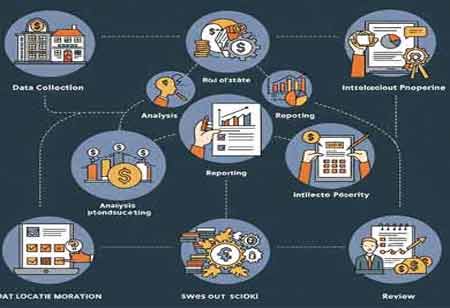CLOSE
Specials
- RegTech Europe
- Financial Risk Management APAC
- Investment Banking APAC
- Corporate Advisory APAC
- Regtech APAC
- Escrow Services
- Digital Banking Latam
- Trading Solutions APAC
- Treasury Management Europe
- CPA Firms Canada
- Financial Risk Management Europe
- Mortgage Broker
- Financial Licensing Europe
- RIA Advisory Europe
- FinTech Canada
- Financial Asset Management APAC
- Investment Banking Canada
- Payment Solution
- Lending Mangment Latam
- Payment Solution Europe
- Broker Dealer Firms Canada
- Alternative Investments Canada
- Financial Fraud
- Investment Management Latam
- Financial Health Europe
- Lending mangment
- Financial Marketing
- Proprietary Trading Europe
- Wealth Management
- FinTech
- Financial Brokerage Firm APAC
- Investment Advisory Europe
- Investment Advisory APAC
- Wealth Management MENA
- Claim Adjusting
- Claim Adjusting APAC
- Mergers and Acquisitions Consulting APAC
- Equipment Financing
- CPA Firms
- Mergers and Acquisitions Consulting Canada
- Investment Services
- Valuation Services Canada
- Wealth Management APAC
- Broker Dealer Firms
- Debt Collection Agencies
- Mergers and Acquisitions Consulting
- FinTech Europe
- Fintech Latam
- Financial Planning / Retirement
- Investment Management
- Financial Compliance
- Digital Banking Europe
- CFO Services
- Debt Collection Agencies Europe
- Wealth Management Europe
- Mergers and Acquisitions Consulting Europe
- Financial Restructuring Europe
- Financial Portfolio Management Canada
- Business Loan
- Payment and Card Latam
- Wealth Management Latam
- Mergers and Acquisitions Consulting Latam
- Tax Advisory Canada
- Trading Solutions Europe
- Alternative Investments
- Digital Insurance Europe
- Investment Services Latam
Weekly Brief
×Be first to read the latest tech news, Industry Leader's Insights, and CIO interviews of medium and large enterprises exclusively from Financial Services Review
Thank you for Subscribing to Financial Services Review Weekly Brief
Data Security and Privacy in Debt Collection
The global digital lending industry has undergone a notable transformation marked by the emergence of debt collection platforms.

By
Financial Services Review | Wednesday, August 07, 2024
Stay ahead of the industry with exclusive feature stories on the top companies, expert insights and the latest news delivered straight to your inbox. Subscribe today.
Safeguarding sensitive customer information and customer privacy is of major importance in the debt collection industry to protect client's interests and the trust of borrowers.
FREMONT, CA: The global digital lending industry has undergone a notable transformation marked by the emergence of debt collection platforms that bridge the gap between businesses and consumers, ensuring the timely recovery of debts while addressing the concerns of both parties.
Rapid technological advancements now place a heightened focus on the ethical and responsible conduct of debt collectors.
This encompasses the management of borrowers' sensitive financial and personal information, necessitating a strong commitment to data security and privacy. To achieve this, debt collection platform providers must implement robust cybersecurity measures, secure encrypted communication channels, and stringent access controls to mitigate the risk of data breaches. Furthermore, adherence to data protection regulations is imperative for debt collection companies operating in this evolving landscape.
Fintech platforms initially enjoyed leniency in granting loans and utilising customer data extensively for assessing borrowers. They accessed various data points from borrowers' mobile devices, including location, contacts, and media galleries, to aid in loan monitoring, recovery, and credit assessment. However, this unregulated use of customer data raised privacy concerns and prompted a shift.
In response, many digital lending policies imposed strict data privacy measures and prohibited certain practices. These guidelines prioritise data protection and operational transparency, making Fintech platforms more accountable for safeguarding customer data and ensuring responsible lending practices.
Secured Data Storage
To safeguard stored data, platforms can employ robust security measures, including data encryption and access control mechanisms across all storage devices and software. Companies responsible for handling sensitive data should also be vigilant in protecting against threats like viruses and data corruption. A widely recognised approach to bolster data security is the adoption and enforcement of a layered security architecture.
Employee Training and Screening
Effective training is essential to ensure that employees are well-versed in relevant data protection regulations. This awareness equips employees with a clear understanding of their legal responsibilities when dealing with customer data. Training initiatives can also underscore the ethical duty of handling personal and financial information with diligence and respect for borrower privacy. Employees should receive instruction in encryption usage, secure communication channels, and adherence to data retention policies for handling sensitive data. Companies must communicate the ramifications of non-compliance with data security and privacy protocols, which may entail disciplinary actions and potential legal consequences.
Vendor Management
Effective vendor management is crucial for safeguarding data security and privacy in debt collection. Debt collection agencies often collaborate with various vendors, including technology providers and service partners, to facilitate their operations. Therefore, it's essential to conduct a comprehensive assessment of potential vendors' data security and privacy practices before entering into partnerships, favouring those who prioritise robust data protection measures. Additionally, debt collection platforms engage on-ground agents, often partnering with third-party agencies, in compliance with regulations. These guidelines hold businesses responsible for the behaviour of recovery agents, emphasising the need to prevent intimidation or harassment during debt collection. When onboarding agents or third-party agencies, it's vital to ensure their awareness of and adherence to these guidelines.
In today's digital age, data security and privacy stand as paramount concerns within the realm of debt collection. Given the sensitivity of financial and personal information involved, a steadfast commitment to data protection is imperative. Through adherence to legal and regulatory frameworks, the implementation of comprehensive security measures, and the cultivation of a culture that prioritises data privacy, debt collection agencies can effectively safeguard not only their client's interests but also nurture the trust and confidence of borrowers in an increasingly data-driven landscape.

Copyright © 2025 Financial Services Review. All rights reserved





